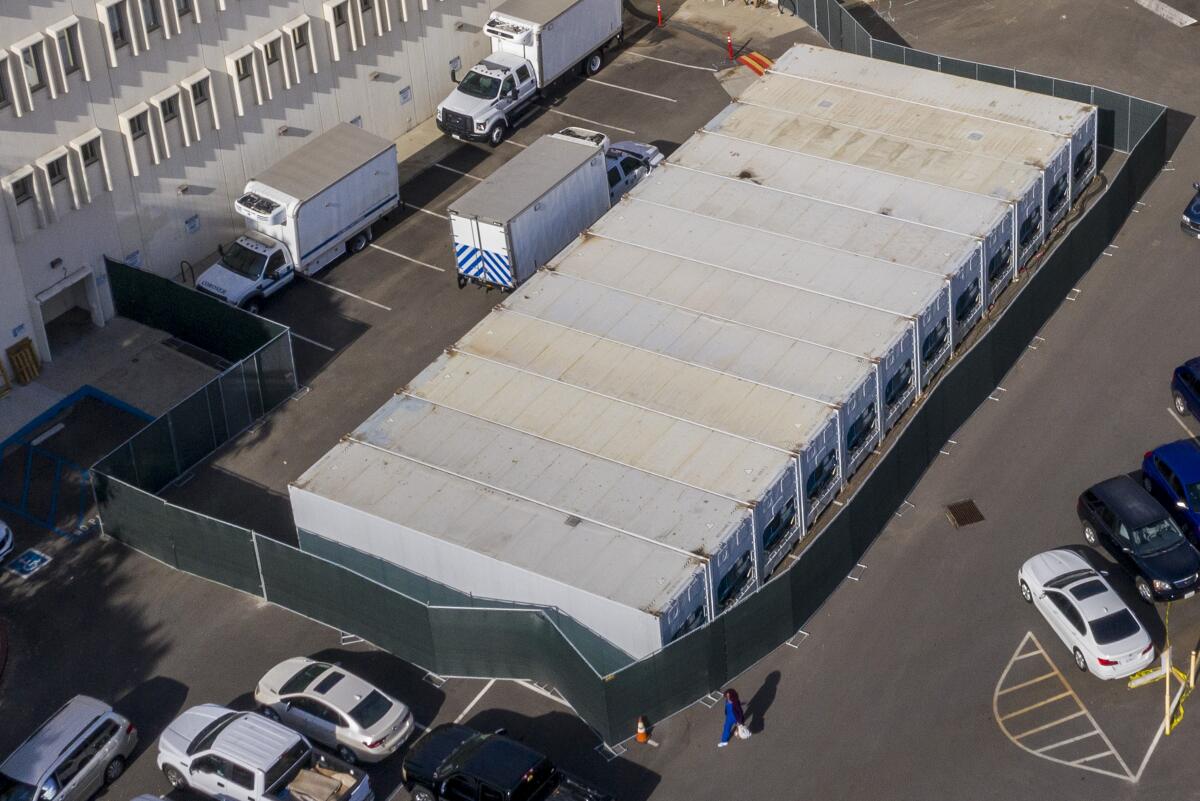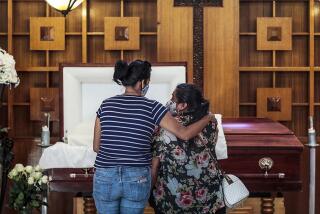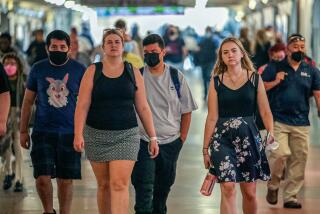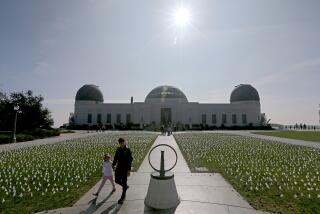‘A mass fatality event’: California struggles with backlog of bodies of COVID-19 victims

With hospital morgues overwhelmed by soaring numbers of bodies amid a surge in COVID-19 deaths, hard-hit parts of California are struggling to store the bodies of those who have died.
The Los Angeles County coroner’s office is accelerating efforts to temporarily store corpses as the local death toll hits record levels.
This week, six members of the California National Guard arrived to assist county workers in transferring bodies from hospital morgues to 12 refrigerated storage units parked at the coroner’s office, said Sarah Ardalani, spokeswoman for the office. Additional helpers from the National Guard are expected to come next week.
Last spring, the coroner’s office had anticipated a surge in the dead and quadrupled its storage capacity to at least 2,000 bodies by bringing in the 12 refrigerated trailers, according to Ardalani. There are also additional trailers that can each hold about 25 bodies.
As of Monday, the coroner’s office was holding 757 bodies.
At the end of November, the beginning of the most recent COVID-19 surge in deaths, the containers held only about 60 bodies.
Then the pace of fatalities began rising. In early December, about 30 people a day were dying; by Saturday, the seven-day average was about 200 people a day.
More than 4,400 COVID-19 deaths have been reported since Dec. 1, an astonishing number in just a matter of weeks. The cumulative number of dead in L.A. County from the disease is more than 12,000, a milestone that was crossed Saturday.
In just the last five days alone, an average of about 250 COVID-19 deaths a day have been reported in L.A. County. That’s higher than the average number of daily deaths from all other causes combined, including heart disease, cancer, stroke, diabetes, car crashes, suicides and homicides, which is about 170.
Hospital morgues are overcrowded because funeral homes and private mortuaries are so full that they are having to turn families away. Open spots at the hospital morgue are quickly being replaced by new bodies.
To prepare for the surge, the California Governor’s Office of Emergency Services has been preparing to dispatch 88 refrigerated trailers around the state to supplement morgue space. Ten have already been dispatched to Los Angeles, San Bernardino, Imperial, Monterey and Sonoma counties.
The other 78 trailers, donated by Illinois-based Hub Group, need to be retrofitted with shelving to double their capacity. Cal-OES said there’s a plan to set up an additional temporary morgue at the campus of the county coroner, with at least five trailers supplied by Cal-OES and another five supplied by L.A. County.
These resources will help “ensure we don’t get large backups, or, if we do have backups, they’re dealt with [with] respect and dignity [and] that we have the appropriate equipment in place or materials that are required for coroners and medical examiners to effectively deal with the decedents,” Cal-OES director Mark Ghilarducci said in a statement.
Funeral homes in Fresno County are also under pressure. Mortuaries have had to figure out ways to maximize storage space for the increasing numbers of dead, Fresno County interim health officer Dr. Rais Vohra said Tuesday, and mobile refrigeration units are being brought in.
“This is a mass casualty, a mass fatality event that our county is experiencing. And we’ve had to expand the storage areas for the dead bodies here in Fresno County beyond what’s normal,” Vohra said.
How much extra space the county will ultimately need depends on how quickly funeral homes and mortuaries can process bodies, Vohra said.
“It’s going to take that whole ecosystem to try to figure out how best to work through this really large number of bodies that they have to get taken care of,” Vohra said. “I’m glad that those two trucks are coming, and I sure hope that we don’t need them.”
Times staff writers Phi Do and Maria L. La Ganga contributed to this report.
More to Read
Start your day right
Sign up for Essential California for news, features and recommendations from the L.A. Times and beyond in your inbox six days a week.
You may occasionally receive promotional content from the Los Angeles Times.








